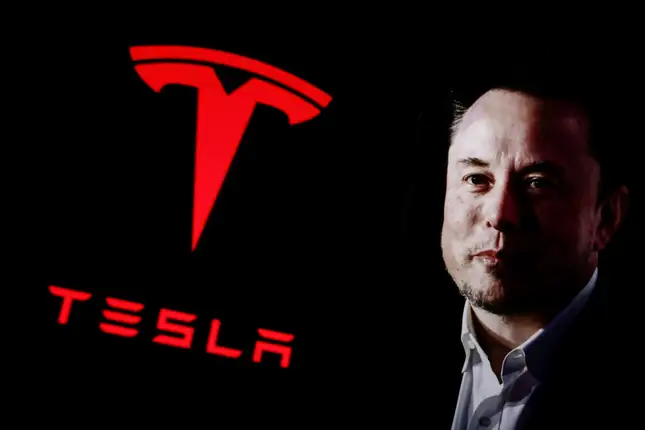Key Takeaway:
- Tesla’s sales dropped 42.6% in Europe, while other automakers pushed out newer, more affordable EVs.
- EV sales are up 23.7%, with electrified cars now making up more than half of all new registrations.
- Rising competition and new EU rules are putting pressure on Tesla to adapt and keep its edge.
Tesla (TSLA.O) is loosing ground in Europe. Despite electric vehicle (EV) sales picking up across the continent, the company’s market share is shrinking fast.
New data shows that Tesla’s sales have taken a huge hit, dropping 42.6% so far this year. While more Europeans are buying EVs, they’re not necessarily choosing Tesla.
Tesla’s Market Share Takes a Hit
In February, Tesla sold a little less than 17,000 cars in the EU, the UK, and EFTA countries, which is way down from 28,000+ it sold in the same month last year. Now, this is a big deal. The company’s share of the overall car market is now 1.8%, down from 2.8% a year ago.
Furthermore, within the EV segment, Tesla’s dominance is fading, now holding 10.3% of the BEV (battery electric vehicle) market, which is also quite low when you compare it to 21.6% last year.
More Competition, Fewer Tesla Buyers
One of Tesla’s biggest challenges is competition. Companies like Legacy automakers and Chinese EV brands are pumping out fresh, often cheaper electric models, while Tesla’s lineup is starting to feel a little old. The company has a new Model Y mid-size SUV launching soon, but for now, buyers have a lot more options to choose from.
At the same time, Europe’s economic slowdown isn’t exactly helping. Overall, car sales are down 3.1%, making it tougher for all automakers. But here’s the twist: while car sales in general are dipping, demand for electric vehicles is rising.
EV Sales Are Growing—Just Not for Tesla
Despite Tesla’s struggle, the EV market itself is doing well. Battery electric vehicle (BEV) sales jumped 23.7% in February, and electrified vehicles (BEV, hybrid, and plug-in hybrid models) made up 58.4% of all car sales, up from 48.2% last year.
The main reason for this shift is mainly because EU emission regulations are pushing automakers to go electric, and buyers now have more affordable EV choices. Some automakers are capitalizing on this trend:
- Volkswagen and Renault saw sales rise 4% and 10.8%, respectively.
- SAIC Motor, a Chinese automaker, grew its European sales by 26.1%, despite EU tariffs.
- Meanwhile, Stellantis and Volvo struggled, with sales dropping 16.2% and 15%, respectively.
Even Chinese brands like BYD are gaining ground, which has pushed their market share from 1.5% to 2.5% in just a year.
Policy Changes & Tesla’s Next Moves
With more EVs on the road, Tesla is trying to adapt. The company recently formed a carbon credit pool with other automakers to help them meet stricter European CO2 targets. But if Tesla’s sales keep falling, that strategy might not hold up for long.
At the same time, EU emission rules could soon change. The bloc is expected to approve a policy allowing carmakers to average fleet emissions over three years, giving them a little more breathing room. That could shake up the market again.
That being said, Tesla’s not out of the game, but it’s clear the European EV market isn’t the same one it dominated a few years ago. With new competitors, economic uncertainty, and shifting policies, Elon Musk’s company has to rethink its strategy.






